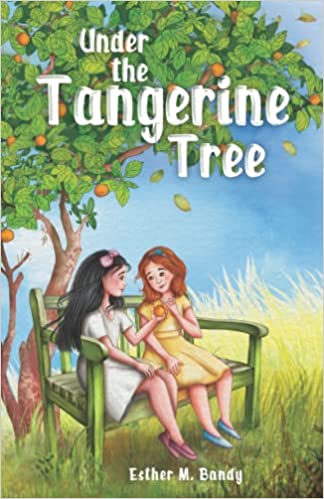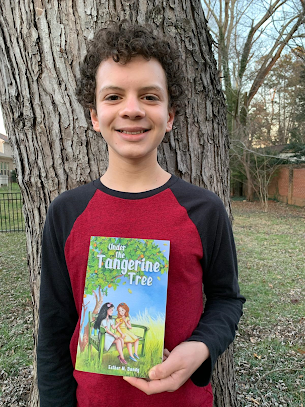I don't know how I missed Zora & Me: The Cursed Ground by T.R. Simon when I was reading books in order to inform Half-Truths, but I did. Fortunately, it's never too late to find a great read!
Anyone who is familiar with Zora Neale Hurston (1891-1960) will know that she was a renowned storyteller who portrayed racial struggles in the early 1900s. If you google Zora Hurston + children's book, you'll find several story books that she wrote, some picture books by contemporary authors, and a few biographies. But I didn't find anything close to this captivating fictionalized account of Zora's childhood adventures with her best friend Carrie--the book's narrator. This is a book that Ms. Hurston would be proud of. The dual timelines of Eatonville, Florida 1903 and Westin, Florida, 1855 are captured beautifully and then come together perfectly at the end.
When Zora Neale Hurston and her best friend, Carrie Brown, discover that the town mute can speak after all, they think they’ve uncovered a big secret. But Mr. Polk’s silence is just one piece of a larger puzzle that stretches back half a century to the tragic story of an enslaved girl named Lucia. As Zora’s curiosity leads a reluctant Carrie deeper into the mystery, the story unfolds through alternating narratives. Lucia’s struggle for freedom resonates through the years, threatening the future of America’s first incorporated black township - the hometown of author Zora Neale Hurston (1891-1960). In a riveting coming-of-age tale, award-winning author T. R. Simon champions the strength of a people to stand up for justice.
I'm going to quote some favorite passages. Although I'm quoting them without any context, I believe you will experience the depth of this story, the evocative sensory writing, and the book's profound meaning for today's readers.
"I do not think a slave who has seen the power of the whip can truly sorrow for someone who owns people, no matter how benevolently he owns them. If there is a kindness that can soften the blow of stolen freedom, I have not seen it." (p. 70)
"Beyond the split-rail fence, Mr. Polk's property turned wild; a forest of tall pines, dense thicket, uncut cane, and rebellious scrub led you into deep shade. Daylight was there, but tall trees had conspired to shrink the sun's power, and the density of the dark was palpable." (p. 78.)
"I shivered. It felt funny standing here on Mr. Polk's land, looking at this hull of a house. Everything about it raised questions, and I wondered if not speaking at all was the only way Mr. Polk could keep so much to himself." (p. 84)
"As long as there are slaves, the free benefit. If it were not for slavery, we would all be merely human. It's our slavery that makes you free." (p.113)
"These white folks pay for what they do. They just don't know it. They pay with a little bit of their soul every time they put their boot on us. Ain't no man nor woman can bring another soul low without losing they own soul. They might not think they lost, but they are." (p. 126)
I had thought Zora was looking to solve a puzzle for the past two days. What she had really been doing was piecing together a quilt, made from the fleeting scraps of the said and the unsaid. She was starting to unfold and show us a whole cloth of Eatonville's history. (p. 174)
My throat burned and my eyes stung. Our lives mattered just as much as theirs, but the truth of that had been erased by slavery. Slavery itself might be over, but neither the Thirteenth Amendment nor anything that had happened since could make us human in the eyes of these men. That was why our parents had fought so hard to create and sustain a corner of the world where we determined our own value. (p.232)
"Why do they hate us so much?"
Old Lady Bronson reached down and took my chin in her hand, firmly yet gently. "They have to hate because you can't take another person's freedom with love."
It was a simple answer, yet contained a universe of truth. (p.248)
***
I've given you some of the bones of this book; I hope you read and discover the entire story. This would be an excellent resource for students who are studying the aftermath of the Civil War.
VIDEOS
For some background information about T.R. and her co-author, Victoria Bond, watch this short video.
***
Congratulations to Kathy O'Neill who won A MEMORY QUILT by Lori Keating.
On Monday, Greg Pattridge will feature this book and other great middle-grade books on his MMGM blog. Check it out!
















